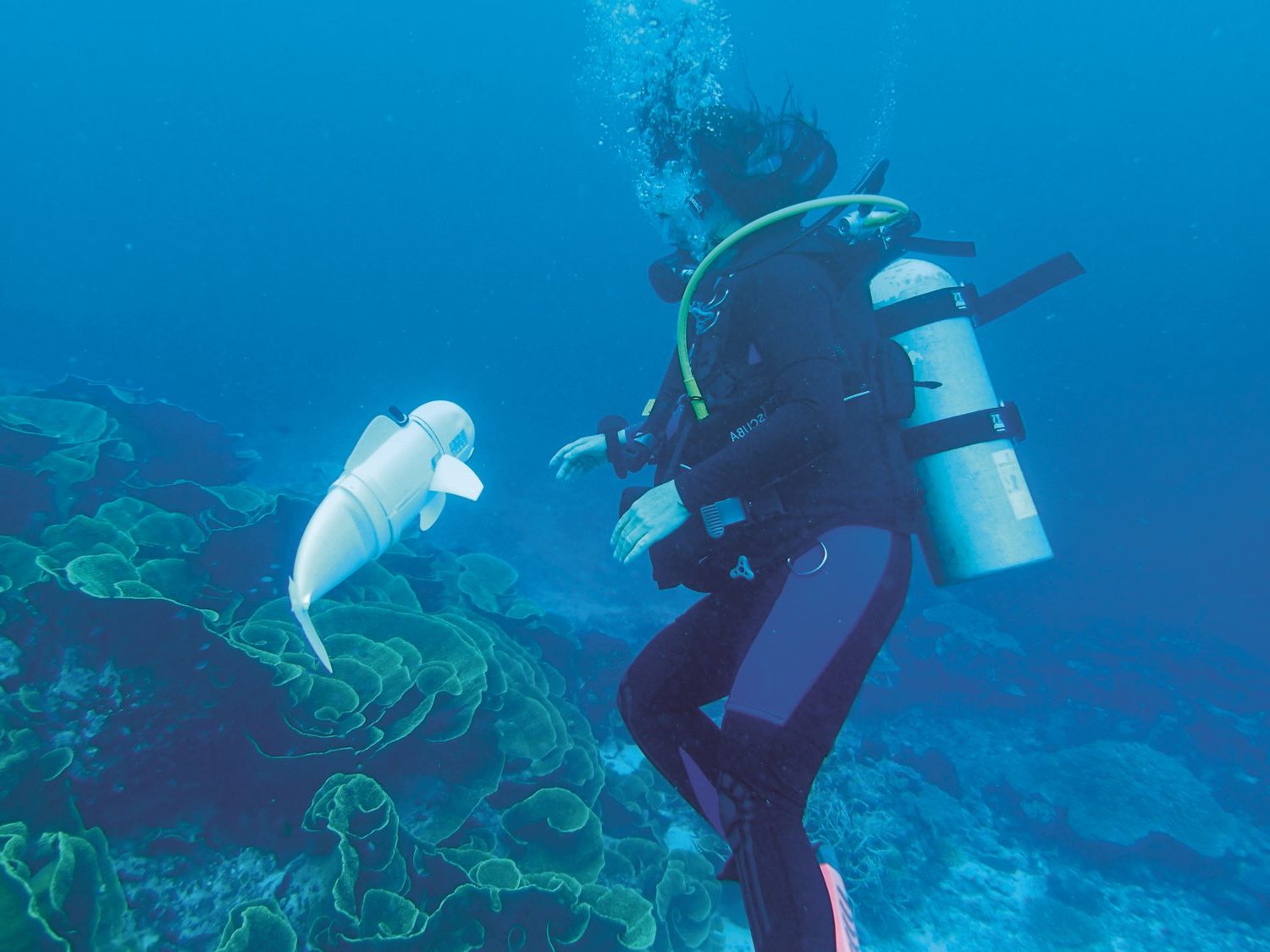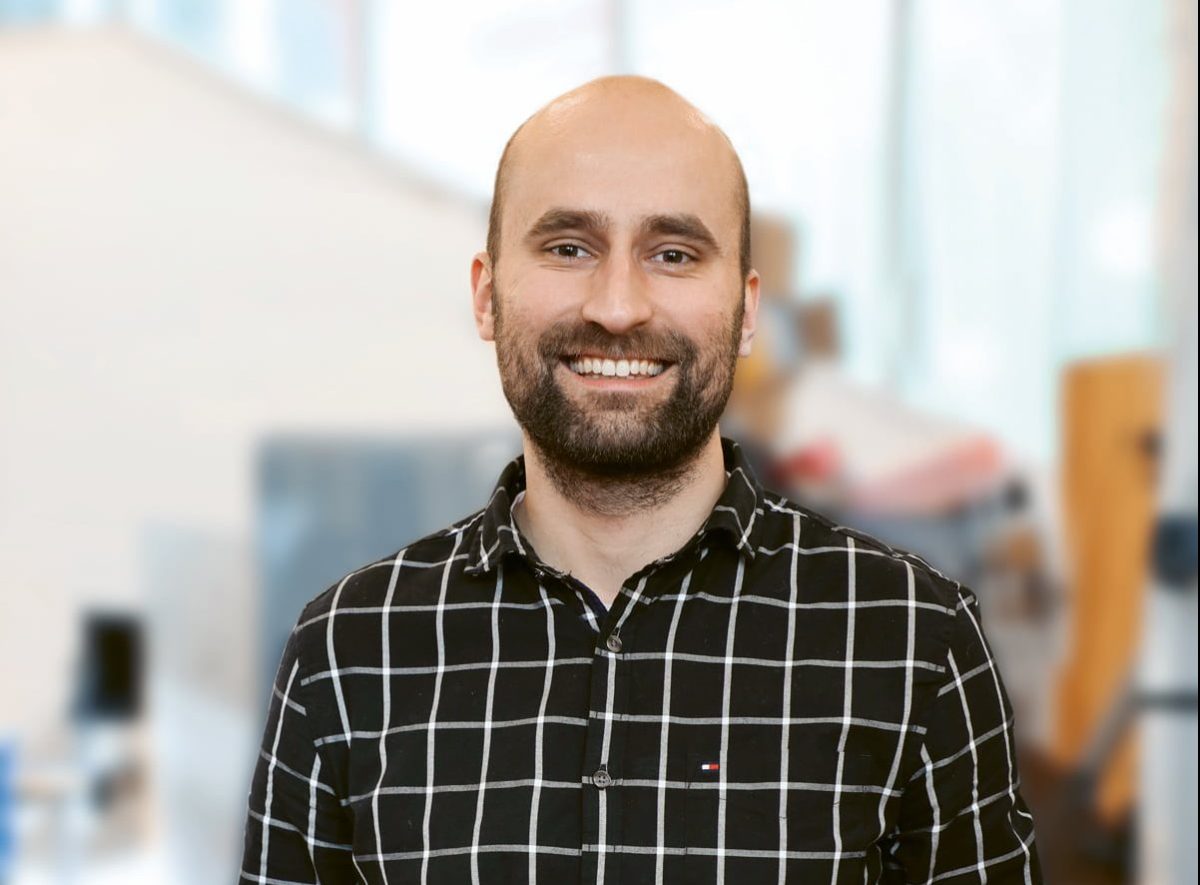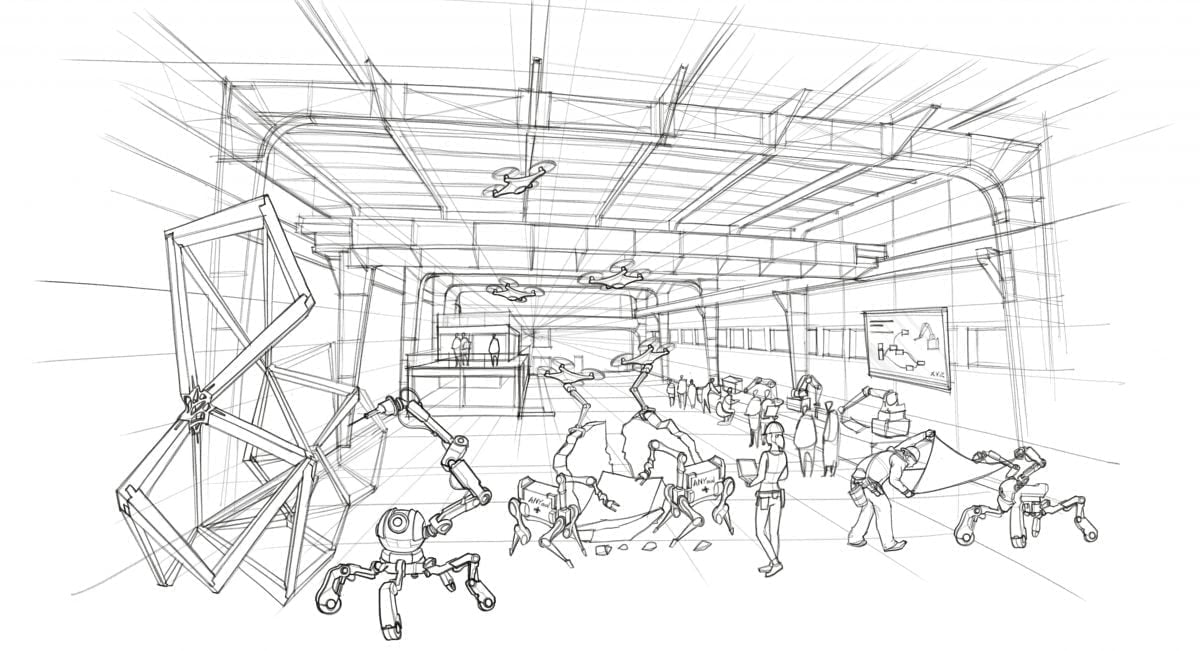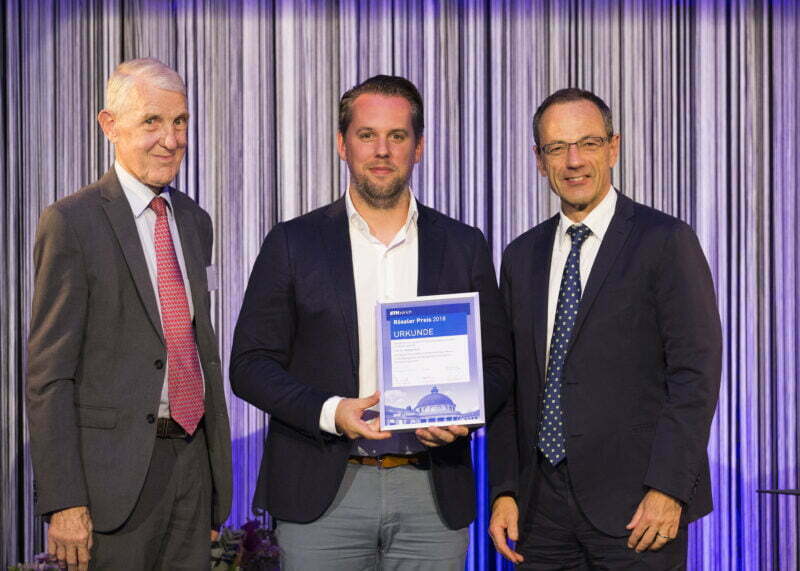Strong focus on robotics
With major efforts being made to understand and improve autonomous systems, ETH researchers aim to maximise the potential application of intelligent machines.

© Joseph Del Preto
© Joseph Del Preto
When imagining a robot, most people think of a machine built of plastic and metal, whirring or humming as it goes about its business. Robert Katzschmann’s robots are different: in the Soft Robotics Lab at ETH Zurich, he and his team are working on machines made of soft and compliant materials equipped with silent artificial muscles that convert electrical energy directly into muscular contractions. The modelling, control and learning techniques being developed in Professor Katzschmann’s lab enable the construction of intelligent systems that resemble living organisms and can be used in a range of applications. For example, the robotic fish SoFi swims like a real fish, moving its tail smoothly from side to side. It integrates itself into the environment and – by not creating noise and turbulence that would drive marine life away – provides researchers with valuable insights into underwater ecosystems.
Research in the Soft Robotics Lab shows how rapidly the field of robotics is developing and how broad the potential for autonomous systems and intelligent machines is. ETH intends to leverage this potential with two additional professorships in the Department of Information Technology and Electrical Engineering and the Department of Mechanical and Process Engineering, thereby maintaining its prominent position in the drive to develop safe and effective autonomous systems.
New professorships
One area of focus will be set on the interplay between system theory and algorithms, with research conducted on the deployment of system theory methods for the analysis and design of novel algorithms in machine learning and beyond.
Conversely, by adapting the latest algorithmic developments – in game theory or machine learning, for example – automation systems can be programmed to be more reliable and efficient. And the safer the systems are, the more socially acceptable they become. The second area of focus concerns the control of automation systems that have complex, physical interactions with the world, with humans, and with other automation systems. Examples include robots, autonomous vehicles, and industrial automation systems. Areas of interest include novel approaches to the design of control, communication, and decision-making strategies that can ensure that these systems are not only efficient but also safe and reliable in real-world settings.
Rich ecosystem
The proposed professorships bridge the fields of computer science and electrical, mechanical and process engineering and cover the entire spectrum of automation systems. Benefitting from the rich ecosystem of initiatives and institutes available at the university – such as RobotX, the ETH AI Center and the Center for Sustainable Future Mobility – they will ensure that the latest technology is transferred to industry through spin-offs and corporate partnerships.



